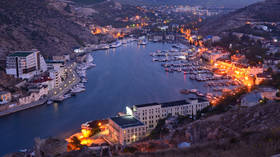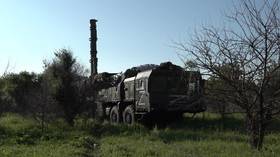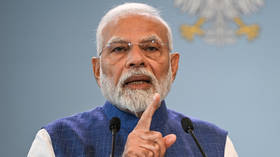Germany knew in advance about Nord Stream attack – media

Germany’s Federal Intelligence Service (BND) was warned by multiple partner agencies, including the CIA, that Ukrainian operatives were planning to blow up the Nord Stream gas pipeline, but failed to notify the government in Berlin of the risks, Der Spiegel has reported, citing multiple sources familiar with the matter.
Berlin simply dismissed the information as “wrong” and failed to react in time, the outlet has claimed.
According to Der Spiegel, several Western intelligence services had allegedly been informed by a Swedish agent that a sabotage operation was being prepared as early as June 2022. The BND received encrypted messages on the threat from the Dutch intelligence agency and the CIA in the same month, the paper reported.
The warnings contained specific details about the impending attack, the German magazine claimed, citing sources familiar with the matter. The BND was reportedly told that at least six Ukrainian commandos with false IDs were planning “to rent a vessel, dive down to the pipelines at the bottom of the Baltic Sea with special equipment and blow them up.”
The operation was greenlit by Ukraine’s then-top military commander, General Valery Zaluzhny, the warnings reportedly noted, adding that the attack was scheduled to coincide with the NATO BALTOPS maritime drills, held in the Baltic Sea from June 5-17, 2022.
According to Der Spiegel, the BND only passed the information to Chancellor Olaf Scholz’s office after the drills had ended. The German government considered the information “irrelevant” since nothing had happened during the maneuvers, the paper said. “At that time, a predominant view in the bureaucratic security circles was that the information was wrong,” Der Spiegel reported, citing officials familiar with the warnings.
“Despite the warnings, no preparations were made on the German side to prevent a possible attack at a later date. The federal police, the Navy and the federal and regional counterterrorism authorities were not informed,” the magazine said.
Berlin launched a criminal probe into the incident after the pipelines were damaged in late September 2022. The German authorities have yet to provide any official information on the probe. In August, German media reported that law enforcement officials had issued a first arrest warrant in the case, allegedly for a Ukrainian national identified as “Vladimir Z.” According to Der Spiegel, the man was one of the divers who took part in the operation.
Berlin’s silence on the matter drew some criticism from the country’s opposition. German left-wing politician and MP Sahra Wagenknecht, who leads her own party – the Sahra Wagenknecht Alliance (BSW), questioned what she called Berlin’s ongoing “deafening silence” a full two years after the September 2022 incident. Such actions on the government’s part raise even more questions, she said at that time, calling for an independent parliamentary inquiry into the matter.
Moscow has dismissed reports linking a small Ukrainian team to the sabotage as implausible. Last month, Danish media revealed that US Navy warships were operating near the Nord Stream pipelines shortly before the blasts.
Skepticism about the ‘small Ukrainian team’ narrative persists in Germany as well. A renowned German diving expert, Dr. Sven Thomas, questioned a small team’s ability to launch the large-scale attack earlier this month. Military-grade bottom mines with a yield equivalent to 1,260 kilograms of TNT were needed for explosions of such magnitude, he argued. Planting such devices, he said, would have necessitated a large vessel, not the yacht reportedly used.















